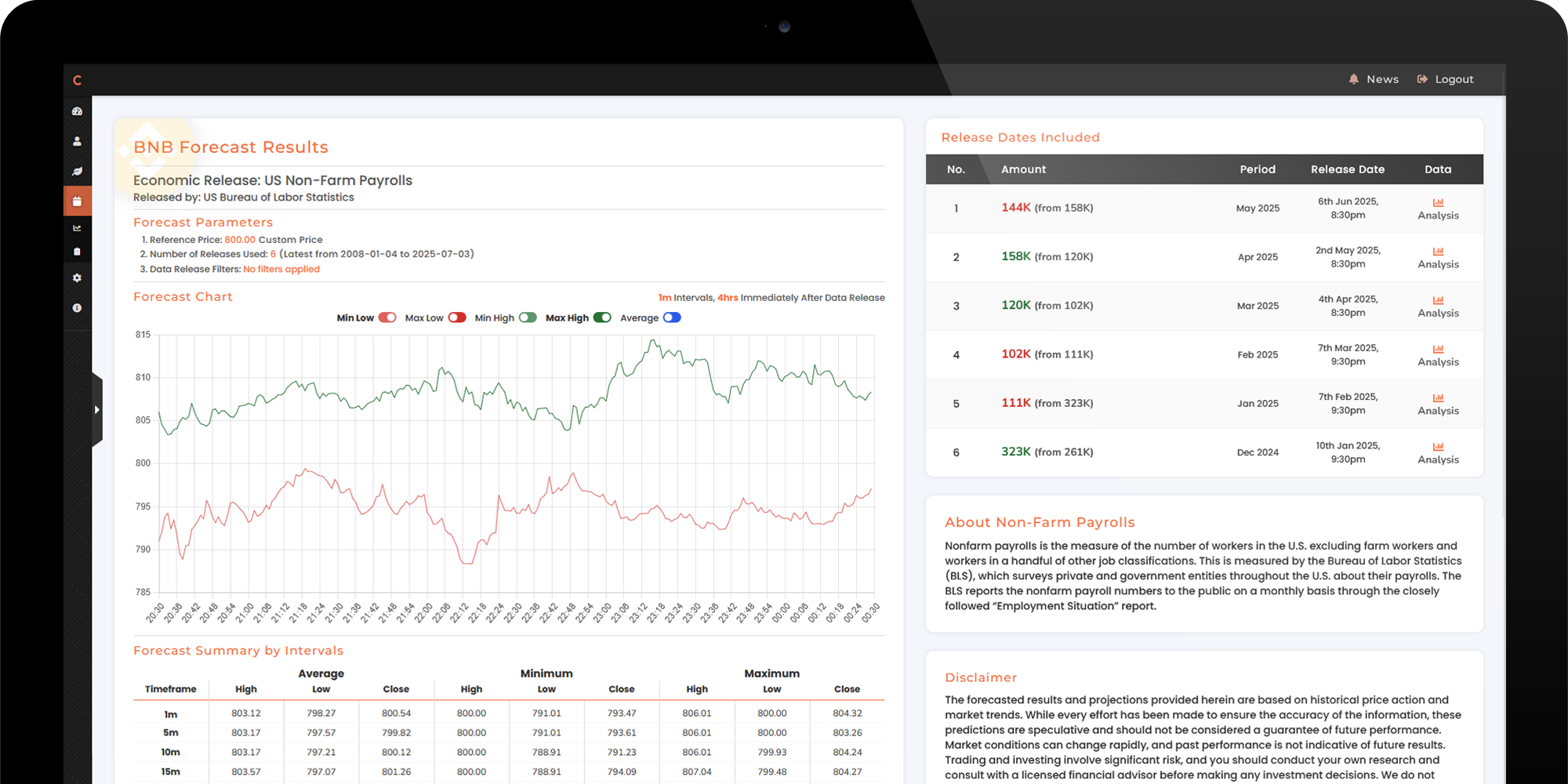-

Bitcoin (BTC)
$96,284.0024h Change
$1,223.50 (1.29%)
24h High
$97,924.49
24h Low
$94,680.67
24h Volume
22,641 BTC
About BTC
Bitcoin (BTC) is the world's first and most widely recognized cryptocurrency, created in 2009 by an anonymous individual or group using the pseudonym Satoshi Nakamoto. It operates on a decentralized, peer-to-peer network that allows users to transfer value directly without the need for intermediaries like banks. Bitcoin relies on a Proof-of-Work (PoW) consensus mechanism, where miners compete to solve complex mathematical puzzles to validate transactions and secure the network. Once verified, transactions are recorded on a public, immutable ledger known as the blockchain. Bitcoin's decentralized nature and limited supply of 21 million coins have contributed to its value proposition as "digital gold" and a hedge against inflation.
Bitcoin's primary use case is as a store of value, though it is also used for payments, remittances, and investment. Over time, it has gained significant attention from both individual investors and institutional players, influencing the overall cryptocurrency market. BTC is considered a pioneer of blockchain technology and has laid the foundation for many other cryptocurrencies and blockchain projects. Its volatility, security, and ability to operate outside the control of governments and central banks make it a unique financial asset in the modern digital economy.
-

Ethereum (ETH)
$3,318.3724h Change
-$15.98 (-0.48%)
24h High
$3,402.89
24h Low
$3,278.00
24h Volume
450,209 ETH
About ETH
Ethereum (ETH) is the native cryptocurrency of the Ethereum blockchain, a decentralized platform that enables developers to build and deploy smart contracts and decentralized applications (dApps). Launched in 2015 by Vitalik Buterin and other co-founders, Ethereum goes beyond Bitcoin's functionality as a store of value by providing a programmable blockchain that supports a wide range of applications. ETH is used to pay for transaction fees and computational services on the network, and it also serves as a store of value and a medium of exchange within the Ethereum ecosystem.
Ethereum has undergone significant upgrades over the years, including the transition from a Proof-of-Work (PoW) to a Proof-of-Stake (PoS) consensus mechanism in Ethereum 2.0, which aims to improve scalability, security, and energy efficiency. This upgrade allows users to stake ETH to help secure the network and earn rewards. Ethereum has become the foundation for decentralized finance (DeFi), NFTs, and many other blockchain-based applications, solidifying its place as a cornerstone of the cryptocurrency world.
-

XRP (XRP)
$2.093924h Change
-$0.0590 (-2.74%)
24h High
$2.1765
24h Low
$2.0819
24h Volume
122.582M XRP
About XRP
XRP is the native cryptocurrency of the XRP Ledger, a decentralized blockchain designed for fast, low-cost, and scalable cross-border payments. Created in 2012 by Ripple Labs, XRP was developed to facilitate real-time global payments, providing a more efficient alternative to traditional banking systems like SWIFT. Transactions on the XRP Ledger are settled within seconds, and fees are minimal, making XRP a popular choice for financial institutions and payment providers looking to improve cross-border remittance services. Unlike Bitcoin, which relies on Proof-of-Work, XRP uses a consensus algorithm that does not require mining, enabling faster and more energy-efficient transactions.
XRP's primary use case is as a bridge currency for converting one fiat currency to another, especially in cross-border transactions. It serves as a liquidity provider for Ripple's payment network, RippleNet, which is used by various financial institutions to send money across borders. XRP has faced regulatory scrutiny, most notably in the United States, where the SEC has filed a lawsuit alleging that Ripple Labs conducted an unregistered securities offering. Despite the legal challenges, XRP remains one of the top cryptocurrencies by market capitalization and continues to be widely used in the remittance and payments sector.
-

BNB (BNB)
$935.5824h Change
-$4.21 (-0.45%)
24h High
$949.85
24h Low
$928.50
24h Volume
163,804 BNB
About BNB
BNB (Binance Coin) is the native cryptocurrency of the Binance ecosystem, one of the largest and most prominent cryptocurrency exchanges in the world. Initially launched in 2017 as an ERC-20 token on the Ethereum blockchain, BNB was later migrated to its own blockchain, the Binance Chain, and subsequently the Binance Smart Chain (BSC). BNB is integral to the Binance ecosystem, used for a variety of purposes including paying for transaction fees on the Binance exchange, participating in token sales, and staking. One of its primary utilities is the discount it offers users on trading fees within the Binance platform, encouraging widespread adoption.
BNB plays a significant role in the broader Binance ecosystem, powering decentralized applications (dApps), DeFi protocols, and NFT platforms within the Binance Smart Chain. The Binance Smart Chain is known for its low fees and high transaction speed, making it a competitive alternative to other smart contract platforms like Ethereum. BNB's utility has expanded beyond the exchange, becoming a major player in decentralized finance (DeFi), gaming, and various other blockchain use cases. Binance also regularly burns BNB tokens to reduce supply, which can increase the token's value over time.
-

Solana (SOL)
$144.4224h Change
-$0.48 (-0.33%)
24h High
$148.44
24h Low
$143.21
24h Volume
3.333M SOL
About SOL
Solana (SOL) is the native cryptocurrency of the Solana blockchain, a high-performance layer-1 blockchain designed to provide fast and scalable decentralized applications (dApps). Launched in 2020 by Anatoly Yakovenko, Solana aims to address the scalability issues faced by other blockchains like Ethereum by using a unique Proof-of-History (PoH) consensus mechanism in combination with Proof-of-Stake (PoS). This enables Solana to process thousands of transactions per second (TPS) with low fees, making it one of the fastest blockchains in the cryptocurrency space. SOL tokens are used to pay for transaction fees, staking to secure the network, and governance participation.
Solana's high throughput and low latency make it an attractive platform for a wide range of use cases, from decentralized finance (DeFi) and NFTs to gaming and Web3 applications. The ecosystem has grown rapidly, with numerous dApps, decentralized exchanges, and NFT marketplaces built on the network. SOL has gained significant attention for its scalability and ability to handle mass adoption, positioning Solana as a key player in the next generation of blockchain technology.
-

Dogecoin (DOGE)
$0.14338024h Change
-$0.005090 (-3.43%)
24h High
$0.151330
24h Low
$0.142420
24h Volume
869.394M DOGE
About DOGE
Dogecoin (DOGE) is a cryptocurrency that was created in 2013 by software engineers Billy Markus and Jackson Palmer as a lighthearted and fun alternative to Bitcoin. It began as a "meme coin," inspired by the popular Shiba Inu dog meme, but over time, it gained a significant following and became a widely used digital currency for tipping, charity, and small online transactions. Unlike Bitcoin, which has a capped supply of 21 million coins, Dogecoin has no maximum supply, meaning it can be mined indefinitely. This leads to high inflation, but it also helps keep transaction fees low, making DOGE practical for everyday microtransactions.
Dogecoin uses the Proof-of-Work (PoW) consensus mechanism, similar to Bitcoin, but its algorithm is based on Scrypt, which makes it less resource-intensive. Its vibrant community, known for promoting charitable causes and internet tipping, has contributed to its enduring popularity. In recent years, Dogecoin has garnered significant mainstream attention, particularly due to endorsements from figures like Elon Musk, who has frequently mentioned it on social media. Despite its origins as a joke, DOGE has evolved into a widely traded cryptocurrency with a strong community and substantial market presence.
-

TRON (TRX)
$0.305624h Change
$0.0014 (0.46%)
24h High
$0.3066
24h Low
$0.3009
24h Volume
194.622M TRX
About TRX
TRON (TRX) is the native cryptocurrency of the TRON blockchain, a decentralized platform focused on content sharing and entertainment. Launched in 2017 by Justin Sun, TRON aims to create a decentralized internet where users can directly share content without relying on intermediaries such as tech giants. The TRON network uses a Delegated Proof-of-Stake (DPoS) consensus mechanism, which allows for faster transaction processing and lower fees compared to many other blockchains. TRX is used to pay for transaction fees, for staking to participate in network governance, and as a medium of exchange within the TRON ecosystem.
TRON's primary focus is enabling content creators to have full ownership and control over their work by eliminating intermediaries. The network supports decentralized applications (dApps), decentralized finance (DeFi), and NFTs, while also offering high scalability and low transaction costs. Over the years, TRON has expanded its ecosystem, acquiring BitTorrent and integrating its file-sharing services into the TRON blockchain, further solidifying its position as a blockchain for digital entertainment and content distribution.
-

Cardano (ADA)
$0.402224h Change
-$0.0242 (-5.68%)
24h High
$0.4267
24h Low
$0.3992
24h Volume
132.555M ADA
About ADA
ADA is the native cryptocurrency of the Cardano blockchain platform, which was created by Charles Hoskinson, one of the co-founders of Ethereum. Launched in 2017, ADA is designed to provide a more secure and scalable infrastructure for decentralized applications, smart contracts, and other blockchain use cases. Cardano distinguishes itself by using a proof-of-stake consensus mechanism known as Ouroboros, which is more energy-efficient than the traditional proof-of-work systems like Bitcoin's. It also emphasizes peer-reviewed academic research and scientific methods to guide its development, aiming for greater reliability and security.
Cardano is structured in multiple layers, which allows for more flexibility and scalability. The settlement layer handles ADA transactions, while the computation layer enables smart contract deployment. This separation helps maintain the security and efficiency of the network. Over time, Cardano has focused on fostering interoperability with other blockchains, supporting a decentralized finance (DeFi) ecosystem, and targeting use cases in industries such as supply chain management, identity verification, and financial inclusion, particularly in developing regions like Africa.
-

Chainlink (LINK)
$13.8824h Change
-$0.22 (-1.56%)
24h High
$14.40
24h Low
$13.73
24h Volume
3.218M LINK
About LINK
Chainlink (LINK) is the native cryptocurrency of the Chainlink decentralized oracle network, which enables smart contracts on blockchains to securely interact with real-world data, APIs, and external systems. Launched in 2017, Chainlink plays a critical role in connecting blockchain applications to off-chain data, making it possible for smart contracts to function in a wide range of industries, including finance, insurance, and supply chain management. LINK tokens are used to incentivize data providers, known as oracles, to supply accurate and reliable information to smart contracts.
Chainlink’s decentralized oracle system ensures that the data feeding into smart contracts is tamper-proof and reliable, mitigating the risks associated with centralized oracles. By enabling secure, real-time data inputs from external sources, Chainlink has become a key infrastructure provider in the decentralized finance (DeFi) ecosystem and beyond, allowing blockchains to expand their use cases to real-world applications. LINK tokens are also used to pay for services on the network and to stake by node operators, ensuring the integrity and security of data transmitted through the Chainlink network.
-

Sui (SUI)
$1.802524h Change
-$0.0472 (-2.55%)
24h High
$1.9380
24h Low
$1.7786
24h Volume
65.546M SUI
About SUI
SUI is the native cryptocurrency of the Sui blockchain, a layer-1 platform developed by Mysten Labs and launched in 2023. Sui aims to redefine blockchain scalability and user experience by introducing a unique parallel execution engine that processes transactions simultaneously rather than sequentially. This enables exceptionally high throughput and low latency, making Sui capable of supporting complex decentralized applications (dApps), gaming, and other high-performance Web3 use cases. Sui uses a consensus mechanism called Narwhal and Bullshark to optimize data availability and consensus efficiency, further improving transaction speeds and network reliability.
SUI tokens serve several roles in the ecosystem, including payment for transaction fees, staking for network security, and participating in governance decisions. Developers on Sui benefit from Move, a secure and flexible smart contract language originally developed for Meta’s Diem blockchain. Move enables developers to write safer and more efficient smart contracts, reducing vulnerabilities common in other blockchains. With its emphasis on performance, scalability, and developer-friendly tools, Sui aims to become a leading infrastructure for the next generation of decentralized applications and digital assets.
-

Bitcoin Cash (BCH)
$611.5024h Change
-$3.50 (-0.57%)
24h High
$624.00
24h Low
$586.30
24h Volume
171,329 BCH
About BCH
Bitcoin Cash (BCH) is a cryptocurrency that emerged from a hard fork of Bitcoin in 2017, aiming to address Bitcoin’s scalability issues. While both Bitcoin (BTC) and Bitcoin Cash share many similarities, BCH was created to provide faster transaction times and lower fees by increasing the block size limit from 1 MB (as in Bitcoin) to 8 MB initially, and later to 32 MB. This larger block size allows Bitcoin Cash to process more transactions per second, making it more suitable for everyday transactions, like buying goods and services, as opposed to Bitcoin, which is often seen as more of a store of value.
Bitcoin Cash retains the core philosophy of decentralization and censorship resistance from Bitcoin but differs in its approach to scaling the network. BCH supporters prioritize the network's ability to handle a high volume of transactions efficiently, promoting it as "peer-to-peer electronic cash." Since its launch, Bitcoin Cash has seen various upgrades to improve its transaction speed, security, and smart contract capabilities. It remains one of the leading cryptocurrencies by market capitalization, with a strong community advocating for its use as a global currency.
-

Hedera (HBAR)
$0.12039024h Change
-$0.006900 (-5.42%)
24h High
$0.127510
24h Low
$0.119170
24h Volume
201.506M HBAR
About HBAR
HBAR is the native cryptocurrency of Hedera, a decentralized public ledger that uses a unique consensus mechanism known as Hashgraph instead of a traditional blockchain. Founded in 2018 by Dr. Leemon Baird and Mance Harmon, Hedera aims to provide high throughput, low fees, and energy-efficient transactions suitable for enterprise applications and decentralized services. The Hedera network can process thousands of transactions per second with finality in seconds, making it a popular choice for use cases like micropayments, tokenized assets, decentralized identity, and supply chain tracking.
HBAR serves multiple roles within the Hedera ecosystem. It is used to pay transaction fees, secure the network through staking, and participate in governance decisions. The Hedera Governing Council, which includes major global enterprises such as Google, IBM, Boeing, and Deutsche Telekom, oversees the network's development and stability. Hedera’s design ensures predictable performance and low costs, attracting both corporate and decentralized developers. HBAR’s environmentally sustainable model and focus on enterprise adoption position Hedera as a leading alternative to traditional blockchain networks for scalable and regulatory-compliant applications.
-

Avalanche (AVAX)
$14.2224h Change
-$0.48 (-3.27%)
24h High
$14.95
24h Low
$14.12
24h Volume
3.039M AVAX
About AVAX
AVAX is the native cryptocurrency of the Avalanche blockchain platform, which was developed by Ava Labs and launched in 2020. Avalanche is a high-performance, decentralized, open-source blockchain platform designed to address scalability, security, and interoperability challenges within the cryptocurrency ecosystem. The platform is built to support a wide range of decentralized applications (dApps) and custom blockchain networks, offering features like smart contracts, asset issuance, and decentralized finance (DeFi) services. Avalanche is known for its consensus mechanism, which uses a novel Proof-of-Stake (PoS) protocol called Avalanche Consensus, allowing the network to process thousands of transactions per second with low fees and near-instant finality.
The Avalanche network is composed of three main blockchains: the Exchange Chain (X-Chain) for asset creation and exchange, the Contract Chain (C-Chain) for smart contract operations, and the Platform Chain (P-Chain) for network governance and staking. This tri-chain structure allows Avalanche to deliver flexibility, high speed, and scalability while maintaining a high level of security. AVAX, the platform’s native token, is used for transaction fees, staking to secure the network, and governance voting, giving holders a say in future network upgrades and policies. Avalanche’s ability to scale and support multiple custom blockchains has made it a significant player in the DeFi and blockchain infrastructure space.
-

Litecoin (LTC)
$74.3624h Change
-$4.90 (-6.18%)
24h High
$80.97
24h Low
$73.07
24h Volume
1.843M LTC
About LTC
Litecoin (LTC) is a peer-to-peer cryptocurrency created by Charlie Lee in 2011 as a "lighter" version of Bitcoin. It was designed to offer faster transaction confirmation times and lower transaction fees, making it more practical for everyday use. Litecoin is based on the Bitcoin protocol but differs in several key ways, including its use of the Scrypt hashing algorithm, which makes it easier to mine using consumer-grade hardware. LTC has a maximum supply of 84 million coins, four times that of Bitcoin, and is often considered the "silver" to Bitcoin's "gold."
Litecoin's faster block generation time, approximately 2.5 minutes per block compared to Bitcoin's 10 minutes, allows for quicker transaction processing, making it more suitable for smaller, day-to-day payments. Over the years, Litecoin has maintained its position as one of the most widely used cryptocurrencies, with a strong community and developer support. It is accepted by various merchants and platforms as a method of payment and continues to play a significant role in the cryptocurrency ecosystem as a reliable and efficient digital currency.
-

Toncoin (TON)
$1.77024h Change
-$0.004 (-0.23%)
24h High
$1.810
24h Low
$1.732
24h Volume
4.724M TON
About TON
TON (The Open Network) is the native cryptocurrency of the TON blockchain, a high-performance layer-1 blockchain originally developed by the team behind Telegram. Initially launched as Telegram Open Network, the project faced regulatory hurdles with the U.S. SEC, leading Telegram to formally withdraw in 2020. However, the open-source community continued development under the name The Open Network. The TON blockchain officially relaunched in 2021, offering fast and scalable blockchain solutions designed to handle millions of transactions per second while maintaining low fees and high security.
TON employs a unique dynamic sharding mechanism, allowing the network to split and merge shards based on load, ensuring scalability and efficiency. The ecosystem includes decentralized storage, DNS services, and smart contracts, positioning TON as a comprehensive platform for decentralized applications and services. TON’s cryptocurrency, also called Toncoin, is used for transaction fees, staking, governance, and various services within the network. With Telegram once again supporting integrations and developments around TON, the blockchain is gaining renewed traction as a scalable solution for global decentralized applications and payments.
-

Shiba Inu (SHIB)
$0.00000924h Change
-$0.000000 (-3.17%)
24h High
$0.000009
24h Low
$0.000008
24h Volume
2.009T SHIB
About SHIB
Shiba Inu (SHIB) is a meme-based cryptocurrency that launched in 2020 as an experiment in decentralized community-building. Inspired by Dogecoin, SHIB gained popularity for its fun, lighthearted branding featuring the Shiba Inu dog, and it was promoted as the "Dogecoin killer." Despite its meme origins, Shiba Inu has evolved into a broader ecosystem, featuring decentralized finance (DeFi) products, a decentralized exchange (ShibaSwap), and plans for further development, including an NFT marketplace. SHIB is an ERC-20 token on the Ethereum blockchain, which allows it to interact with other Ethereum-based dApps and services.
SHIB has a massive supply of tokens in circulation, which initially attracted a large community due to its affordability. In addition to SHIB, the ecosystem includes two other tokens—LEASH and BONE—each serving different purposes within the Shiba Inu ecosystem, such as governance or providing liquidity. While Shiba Inu's rise was largely fueled by social media hype and community engagement, it has gained significant attention and utility through its expanding ecosystem of DeFi products and partnerships, positioning it as more than just a meme coin.
-

Uniswap (UNI)
$5.47524h Change
-$0.287 (-4.98%)
24h High
$5.852
24h Low
$5.454
24h Volume
4.469M UNI
About UNI
Uniswap (UNI) is the native cryptocurrency of the Uniswap decentralized exchange (DEX), which operates on the Ethereum blockchain. Launched in 2020, UNI is a governance token that allows holders to participate in decision-making processes regarding upgrades, protocol changes, and the allocation of treasury funds within the Uniswap ecosystem. Uniswap itself is an automated market maker (AMM), which enables users to trade cryptocurrencies directly from their wallets, without the need for a centralized intermediary. The platform uses liquidity pools to facilitate these trades, and liquidity providers earn fees in return for supplying assets to the pools.
Uniswap has become one of the largest decentralized exchanges, playing a crucial role in the decentralized finance (DeFi) ecosystem by enabling permissionless token swaps. UNI holders have a say in governance, giving them the ability to influence the direction of the platform and make decisions that can impact its future. The Uniswap platform has greatly contributed to the growth of DeFi, offering a decentralized and open financial system that reduces reliance on traditional centralized exchanges.
-

Polkadot (DOT)
$2.18124h Change
-$0.110 (-4.80%)
24h High
$2.298
24h Low
$2.157
24h Volume
7.307M DOT
About DOT
Polkadot (DOT) is the native cryptocurrency of the Polkadot network, a next-generation blockchain protocol designed to enable multiple blockchains to interoperate and share information securely. Created by Ethereum co-founder Gavin Wood, Polkadot's primary goal is to overcome the limitations of existing blockchain networks, such as scalability, governance, and interoperability. The network uses a unique sharding approach where multiple parallel blockchains, called parachains, run alongside the main relay chain, allowing for faster processing of transactions and more efficient use of resources. DOT serves multiple functions within the network, including staking for security, participating in governance, and bonding to create new parachains.
Polkadot's innovative architecture is built to support a decentralized web, where independent blockchains can seamlessly communicate and transfer value between one another. This interoperability opens the door for a wide range of use cases, from decentralized finance (DeFi) to gaming, supply chain management, and cross-chain data sharing. DOT holders play an active role in the network's governance by voting on upgrades and changes, ensuring the system remains decentralized and adaptive to future innovations. Polkadot’s flexible and scalable infrastructure has attracted many developers and projects, positioning it as a key player in the blockchain ecosystem.
-

Aave (AAVE)
$174.2724h Change
-$3.91 (-2.19%)
24h High
$180.37
24h Low
$171.94
24h Volume
97,015 AAVE
About AAVE
AAVE is the native governance token of the Aave Protocol, a decentralized finance (DeFi) platform enabling users to lend, borrow, and earn interest on cryptocurrencies without intermediaries. Originally launched as ETHLend in 2017, the project rebranded to Aave in 2018 to focus on building a broader lending ecosystem. Aave is notable for pioneering innovations like flash loans, which allow users to borrow assets without collateral as long as the loan is repaid within a single blockchain transaction. In October 2020, the platform launched the AAVE token through a migration from its earlier LEND token, giving holders governance rights and staking incentives within the protocol.
The Aave protocol operates on Ethereum and other networks, offering both stable and variable interest rate options for borrowers, as well as innovative risk management tools. Users who deposit assets into Aave’s liquidity pools receive aTokens, which accrue interest in real-time. AAVE tokens are used for governance, allowing holders to vote on protocol upgrades, parameter changes, and new features. Additionally, AAVE can be staked in the Safety Module to earn rewards while providing a backstop in case of protocol deficits. With its focus on security, innovation, and decentralized governance, Aave has become one of the leading platforms in the DeFi space.
-

Bittensor (TAO)
$285.5024h Change
-$10.60 (-3.58%)
24h High
$302.40
24h Low
$279.60
24h Volume
111,466 TAO
About TAO
TAO is the native cryptocurrency of the Bittensor network, a decentralized machine learning protocol designed to create an open, collaborative, and incentivized market for artificial intelligence models. Launched initially in late 2021 and further expanded with its Finney network in March 2023, Bittensor allows developers to contribute machine learning models to a global network where they can be used, evaluated, and rewarded based on performance. The network utilizes blockchain technology to ensure transparency, verifiable incentives, and decentralized governance, aiming to disrupt the traditional centralized AI industry dominated by large corporations.
TAO tokens are used within the Bittensor ecosystem to pay for access to machine learning services, reward contributors for providing valuable models and compute resources, and participate in network governance. By aligning economic incentives with AI development and deployment, Bittensor creates a permissionless environment where innovation in AI can flourish. The project envisions a future where AI resources are democratized, enabling both individuals and organizations to benefit from collaborative machine learning. TAO has gained significant attention for pioneering the intersection of blockchain and artificial intelligence, offering a decentralized alternative to traditional AI ecosystems.
-

NEAR Protocol (NEAR)
$1.76724h Change
-$0.079 (-4.28%)
24h High
$1.864
24h Low
$1.743
24h Volume
17.364M NEAR
About NEAR
NEAR Protocol (NEAR) is a decentralized, layer-1 blockchain designed to provide a developer-friendly platform for decentralized applications (dApps) with a focus on scalability, security, and usability. Launched in 2020, NEAR utilizes a novel sharding technology called "Nightshade" to achieve high throughput and low transaction costs. This allows the network to handle a large number of transactions per second while maintaining decentralization. NEAR tokens are used for transaction fees, staking to secure the network, and governance, enabling token holders to participate in decision-making for protocol upgrades and changes.
NEAR Protocol is built to make blockchain more accessible to both developers and users by offering a more intuitive and user-friendly experience compared to other networks. Its emphasis on scalability and ease of use has made it a popular choice for developers creating dApps, NFTs, and decentralized finance (DeFi) solutions. NEAR also supports interoperability with other blockchains, including Ethereum, through its Rainbow Bridge, allowing assets and data to flow freely between networks, further expanding its potential use cases in the blockchain ecosystem.
-

Aptos (APT)
$1.89924h Change
-$0.058 (-2.96%)
24h High
$1.971
24h Low
$1.881
24h Volume
6.06M APT
About APT
APT is the native cryptocurrency of the Aptos blockchain, a layer-1 blockchain that aims to deliver a more scalable, secure, and user-friendly decentralized ecosystem. Aptos is notable for being developed by former Facebook engineers who worked on the now-defunct Diem blockchain project. Launched in 2022, Aptos utilizes a novel consensus protocol based on a Byzantine Fault-Tolerant (BFT) system, which enhances both the speed and security of transactions. The Aptos blockchain is designed to process thousands of transactions per second, offering low-latency and high-throughput capabilities for decentralized applications (dApps) and financial products.
Aptos emphasizes user experience, with its programming language, Move, designed to facilitate secure and efficient smart contracts. Move, originally developed for Facebook’s Diem project, offers strong safety guarantees, making it easier to avoid common security vulnerabilities in smart contracts. With APT as its utility token, the Aptos blockchain supports various decentralized finance (DeFi) applications, non-fungible tokens (NFTs), and other decentralized services. Its focus on scalability and security aims to position Aptos as a leading blockchain solution for a wide range of industries, from finance to gaming and beyond.
-

Internet Computer (ICP)
$4.48424h Change
$0.845 (23.22%)
24h High
$4.822
24h Low
$3.608
24h Volume
31.247M ICP
About ICP
Internet Computer (ICP) is the native cryptocurrency of the Internet Computer Protocol, a decentralized blockchain network launched by the DFINITY Foundation in 2021. The Internet Computer aims to extend the functionality of the internet by allowing developers to build decentralized applications (dApps) and services directly on a public blockchain, without the need for traditional server infrastructure. ICP tokens are used for governance, allowing holders to participate in decision-making processes, and to pay for the computation and storage required to run applications on the network.
The Internet Computer is designed to provide an alternative to the current cloud-based model of web hosting, enabling developers to create scalable and secure applications that run entirely on-chain. Its unique architecture allows for high-speed transactions, scalable dApp deployment, and the integration of smart contracts with internet services. The project aims to decentralize the web, offering a platform for open, permissionless innovation, while reducing the costs associated with running and maintaining traditional server infrastructure.
-

POL (prev. MATIC) (POL)
$0.151924h Change
-$0.0100 (-6.18%)
24h High
$0.1650
24h Low
$0.1517
24h Volume
124.32M POL
About POL
Polygon (MATIC) is the native cryptocurrency of the Polygon network, a layer-2 scaling solution for Ethereum that aims to improve the scalability, speed, and efficiency of decentralized applications (dApps). Originally launched as Matic Network in 2017, the project was rebranded to Polygon in 2021. MATIC tokens are used to pay for transaction fees, secure the network through staking, and participate in governance decisions. By providing a framework for building and connecting Ethereum-compatible blockchains, Polygon enhances Ethereum's ability to handle higher transaction volumes with lower fees.
Polygon's layer-2 solution operates alongside Ethereum, helping to offload the processing of transactions to sidechains, which are faster and more cost-efficient. This allows developers to create dApps that benefit from Ethereum's security and decentralization without being limited by its scalability issues. MATIC plays a crucial role in this ecosystem, incentivizing validators to maintain network security and offering users a more affordable and scalable experience when interacting with Ethereum-based applications. Polygon has gained significant adoption in the DeFi, gaming, and NFT sectors.
-

Filecoin (FIL)
$1.56924h Change
-$0.009 (-0.57%)
24h High
$1.685
24h Low
$1.541
24h Volume
28.672M FIL
About FIL
Filecoin (FIL) is the native cryptocurrency of the decentralized storage network, Filecoin, which was launched by Protocol Labs in 2020. The platform allows users to rent out unused storage space on their computers, creating a decentralized marketplace for data storage. FIL tokens are used to pay for storage services and transactions within the network. By utilizing blockchain technology and a Proof-of-Replication and Proof-of-Spacetime consensus, Filecoin ensures that data is stored securely and reliably across a distributed network of storage providers.
Filecoin aims to revolutionize the way data is stored by offering a decentralized alternative to traditional cloud storage providers like Google and Amazon. It allows anyone to offer storage services or store data, increasing data redundancy, privacy, and reducing the reliance on centralized storage services. FIL is also used to incentivize storage providers to maintain high levels of performance and reliability, ensuring the long-term success and growth of the decentralized storage ecosystem.
